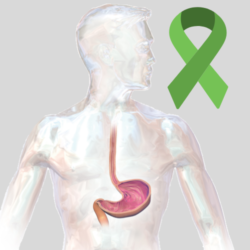Digestive Health Specialists, PA is here to help if you, or someone you know, would like more information, or if you are experiencing any digestive health symptoms and would like further evaluation. Feel free to give us a call at 336-768-6211 or fill out the form below.
What is Gastroparesis?
Gastroparesis is a chronic disorder, which means delayed stomach emptying without a blockage. In healthy people, when the stomach is functioning normally, contractions of the stomach help to crush ingested food and then propel the pulverized food into the small intestine where further digestion and absorption of nutrients occurs.
Symptoms
Symptoms include fullness after meals, pain, nausea vomiting, weight loss, belching, and bloating. Certain foods like fatty foods, or carbonation may cause symptoms. The feeling of fullness after starting a meal is very common. Weight loss may also occur.
Causes
Diabetes is one of the more common causes. Gastroparesis may also occur after stomach surgery. Other causes include bacterial and viral infections. Narcotics, antidepressants, and other medications which delay stomach emptying may also cause gastroparesis. There are a group of patients with gastroparesis where there is no obvious cause.
| Medications associated with impaired gastric emptying |
|
Diagnosis
A gastric emptying study is the most commonly used test. It is a test using a tiny amount of radioactive material mixed with food. With imaging equipment, it measures the rate of emptying of the stomach after taking a meal. A delay in gastric emptying indicates gastroparesis.
13 C spirulina Gastric Emptying Breath Test is a nonradioactive test to evaluate for gastroparesis. It is a test also using labeled food where the patient provides breath samples for analysis.
A wireless capsule system called (SmartPill®) Is a capsule that contains a small electronic device. This device records information as it travels to your stomach and intestine. The information is transmitted to a receiver worn on the waist. The capsule is passed in your stool.
Treatments for Gastroparesis
The initial treatment in patients with gastroparesis is to create a diet that will improve the symptoms. Your physician may recommend eating frequent small meals and to avoid fatty, spicy, acidy, and high fiber foods. Your physician may also recommend soups or more liquid-containing meals.
In addition, we always want to make sure our patients are well hydrated.
Those patients with diabetes should have good control of their sugars.
Medicines that delay stomach emptying should be avoided if possible.
- Metoclopramide: An important medicine to treat gastroparesis. There are risks in using this medication that you need to discuss with your physician. They will help you weigh the pros and cons and help you make the best decision for your situation.
- Erythromycin: You may know erythromycin as an antibiotic. Erythromycin also causes stomach contractions. Your physician may consider this option if you fail to respond to metoclopramide or you wish to try something else. Erythromycin also has side effects. It does not work after 4 weeks. Your doctor will also help you weigh the pros and cons of using this medication.
- Anti Emetics: (Medications to control nausea and vomiting) Your physician may also consider the use of medications like prochlorperazine (Compro), and diphenhydramine (Several brand names including Benadryl), ondansetron (Zofran). There are risks and benefits to these medications as well.
Special Treatments
G -POEM (gastric peroral endoscopic myotomy): a specialized procedure done in those patients who have not responded to other therapies. It involves minimally invasive surgery of the stomach performed by endoscopy. An endoscopy is a test that is performed after giving intravenous sedation. A small tube is inserted in the stomach where the surgery occurs. There are additional experimental options that your doctor may discuss with you including surgically placing an electric stimulation device on your stomach. Electrical stimulation helps control symptoms.
There are several newer pharmacological agents on the horizon that offer promise in treating gastroparesis.
The information contained in this article is from: https://gi.org/topics/gastroparesis/









